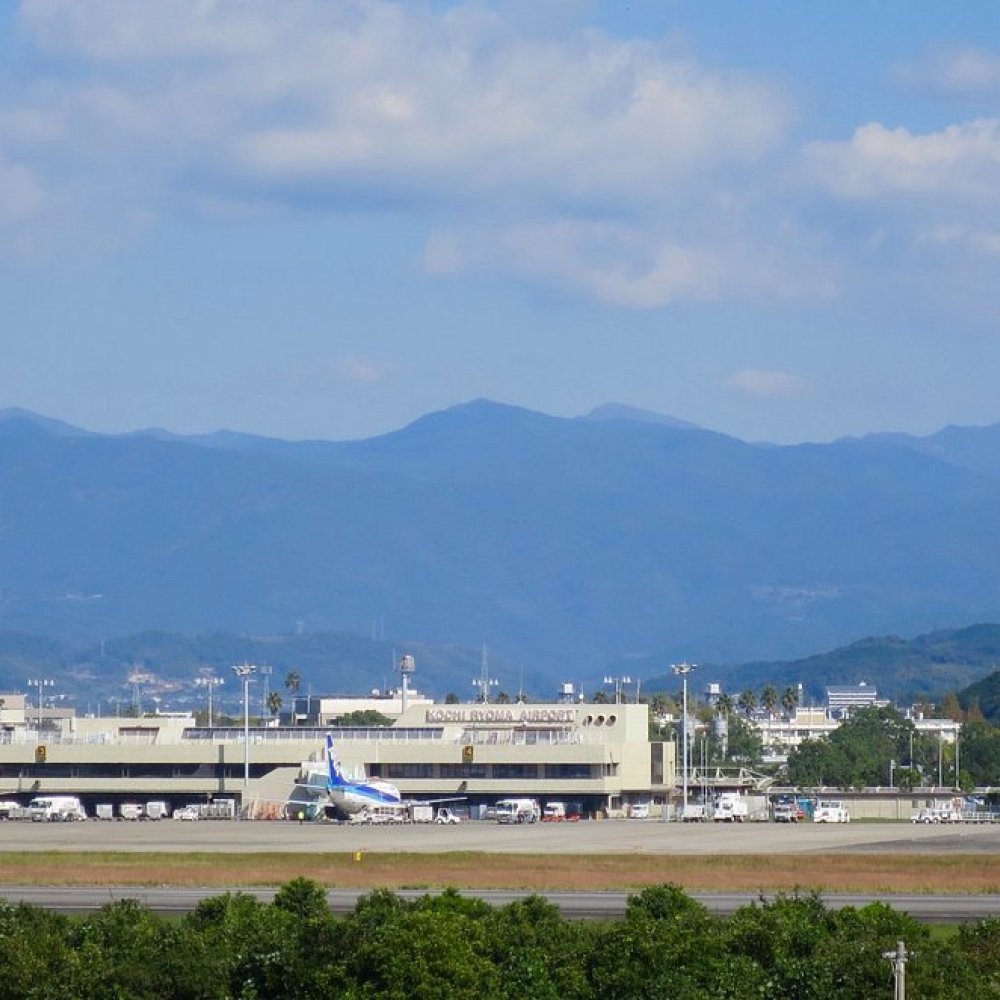Picture yourself in the bustling heart of Kampala or Entebbe, the excitement of an upcoming flight mingling with the hum of city life. The question echoes: how to get to Entebbe/Kampala Intl Airport, UG without stress or overspending? Whether it’s your first trip or a frequent flyer’s routine, planning this seemingly straightforward journey calls for more than just jumping in a car. From the pre-dawn hours to evening returns, the choices buffet you: taxis waiting beneath streetlights, the promise of a rideshare at your fingertips, or the local buses weaving through crowded streets. This guide aims to demystify your options, balancing speed, cost, comfort, and the unique quirks of Ugandan transit. As you read, imagine the gentle breeze on a morning tuk-tuk ride or the reassuring hum of a train pulling away from the platform - all while your luggage stays secure and your budget intact. Join me as we explore practical, cost-effective, and safe ways to confidently navigate your transfer to Entebbe/Kampala Intl Airport, UG.

Why Plan Your Airport Transfer?
When I last landed at Entebbe/Kampala Intl Airport, UG, a taxi waiting almost doubled my expected fare because I hadn’t booked beforehand. That mix of surprise and scramble sparked a sincere appreciation for planning your airport transfer. The region’s varied transport options - ranging from informal local buses to well-tuned rideshare apps - mean your choice impacts not only your wallet but your arrival experience.
Reliable pre-trip planning mitigates risk: avoiding last-minute haggling, guarding against unforeseen delays, and ensuring smooth luggage handling. Within Kampala and Entebbe’s lively urban ecosystem, traffic congestion regularly disrupts typical journey times. Early morning or late evening departures can also limit your options if you rely solely on public transit. Whether you value a direct trip, cost-efficiency, or accessibility, knowing how to get to Entebbe/Kampala Intl Airport, UG in advance fortifies your confidence and eases the journey's inevitable stresses.
Additionally, clear planning helps you navigate local idiosyncrasies - the cash-only dynamics of buses or the scarcity of late-night rideshare vehicles. Armed with proactive choices, you’ll sidestep the stress and start your trip on a relaxed, empowered note.
Price & Time Grid: Your Options at a Glance
| Mode | Single Fare (UGX) | Return Fare (UGX) | Journey Time | First Service | Last Service | Night Surcharge |
|---|---|---|---|---|---|---|
| Taxi | 50,000–70,000 | 90,000–130,000 | 45–60 mins | 24/7 | 24/7 | Usually 10–20% |
| Rideshare (Uber/Taxify) | 40,000–60,000 | 75,000–110,000 | 45–60 mins | 05:00 | 23:00 | 10–15% |
| Rail (Express) | 5,000 | 8,500 | 35–45 mins | 06:00 | 21:00 | None |
| Express Bus | 3,000–5,000 | 5,000–8,000 | 60–75 mins | 06:00 | 20:00 | None |
| Local Bus | 1,000–2,000 | 1,500–3,500 | 90+ mins (variable) | 05:00 | 18:00 | None |
Choosing your mode to get to Entebbe/Kampala Intl Airport, UG depends on balancing price, time, and convenience. Taxis and rideshares offer door-to-door comfort but cost more, especially for late trips with surcharges. The train is fastest and most affordable yet runs limited schedules. Express buses strike a middle ground for budget travellers willing to compromise on speed. Meanwhile, local buses, though cheapest, risk unpredictability and longer trips. Use the above grid as your baseline, then weigh your priorities accordingly.
Step-by-Step Guide for Each Mode
Taxi
- Call your preferred company or hail a taxi in designated taxi ranks around Kampala or Entebbe city centre.
- Confirm fixed fare to Entebbe/Kampala Intl Airport, UG to avoid meter-related surprises.
- Load your luggage carefully into the boot, and ask for assistance if needed.
- Ensure the driver notes your flight time and preferred route, then relax during the 45–60 minute ride.
- Arrive at the airport’s designated drop-off point near Departures to disembark hassle-free.
Rideshare (Uber/Taxify)
- Open your rideshare app and set Entebbe/Kampala Intl Airport, UG as your destination.
- Review fare estimate and select ride type (economy or premium).
- Confirm pickup location and wait near your selected spot for quick driver arrival.
- Communicate any special luggage needs via in-app chat if required.
- Take your 45–60 minute journey, monitoring traffic via app, paying seamlessly, and tipping optionally.
Rail
- Arrive early at the Kampala Train Station to purchase your ticket to Entebbe/Kampala Intl Airport, UG train stop.
- Check the train schedule for departure times, identifying express services.
- Board the train promptly, stowing smaller luggage overhead or under seats.
- Enjoy a quicker 35–45 minute trip, watching Ugandan landscapes pass by.
- Disembark at the airport station and proceed into the terminal on foot or via shuttle.
Bus (Express & Local)
- Locate the central hub or bus park for buses heading to Entebbe/Kampala Intl Airport, UG.
- Buy your ticket upfront; express buses cost slightly more than local options.
- Board your bus, observing luggage rules; larger bags may require additional fees or storage.
- Prepare for variable journey times, especially on local buses prone to multiple stops.
- Request the stop closest to the airport and walk or catch a short taxi to the terminal.
Returning a Rental Car
- Refuel your rental car to the agreed level using nearby petrol stations; some companies require full tanks (Hertz, March 2025).
- Follow clear and well-marked airport signs directing you to the car rental return area.
- Park in your rental company’s designated bays and hand over keys and paperwork to the agent.
- If returning after hours, use the drop-box facility for keys and ensure paperwork is complete.
- Confirm final charges while keeping copies of receipts for your records.
- Use shuttle services the rental company provides to reach the Departures terminal comfortably.
Money-Saving Hacks
- Book your taxi or rideshare in advance to lock in lower fares and avoid surge pricing.
- Use the Entebbe/Kampala Intl Airport, UG train for quick, affordable transit during daytime.
- Consider express buses over taxis during peak hours for cost efficiency.
- Travelling light? Opt for local buses but prepare for longer journeys and casual seating.
- Check if your accommodation offers free or discounted airport shuttles to avoid additional costs.
Peak-Hour vs Off-Peak Travel Times
Peak hours in Kampala and Entebbe typically occur from 7:00 to 9:30 and again between 16:30 and 19:00 on weekdays. Traffic jams lengthen travel times considerably, and in some cases taxis or buses may add an extra 30 to 45 minutes during these stretches. Arriving early or scheduling departures outside these windows can transform your trip into a smooth, predictable commute.
Off-peak travel between 10:00 and 15:30 allows for faster transfers and often lower taxi or rideshare costs due to reduced demand. However, public transport services such as local buses may reduce frequency mid-day, so checking timetables in advance is wise. Planning your trip around these dynamics is key to mastering how to get to Entebbe/Kampala Intl Airport, UG efficiently.

Accessibility & Luggage Factors
Travelling with bulky luggage or mobility challenges requires thoughtful choices. Taxis and rideshares boast the most accessible vehicles, often providing assistance with suitcase handling and a door-to-door drop-off. They also tend to accommodate wheelchairs or walkers if requested in advance.
The Entebbe/Kampala Intl Airport, UG train has limited but improving accessibility features; stations may lack elevators, so plan accordingly. Express and local buses often have narrow entrances and crowded interiors, making boarding difficult for those with reduced mobility or heavy baggage. Arriving early and alerting drivers helps secure space.
Consider the overall luggage volume: sizeable bags or multiple pieces might overload buses or trains’ designated storage areas. Opting for taxi or rideshare means no compromises on your comfort or risk of damage. Remember that comfort and ease often justify slightly higher fares when accessibility is at stake.
Carbon-Smart Alternatives
For the environmentally conscious traveller figuring out how to get to Entebbe/Kampala Intl Airport, UG, shared shuttles offer a greener footprint by consolidating trips. Some hotels and local operators provide scheduled shuttle buses which reduce individual emissions.
Bike-and-ride options remain niche but promising near city centres, combining a short cycling route to a train or bus hub with your onward journey. If you drive to nearby park-and-ride lots, these facilities keep your car safe while lowering congestion around the airport itself.
While not yet widespread, electric taxi or rideshare fleets are emerging gradually in Uganda, signalling a future step toward more sustainable airport transfers. Choosing shared or multimodal transport today helps shape greener options tomorrow.
Sample 08:00 Flight Timeline
- T - 12 hours: Confirm airport transfer booking and check flight status.
- T - 4 hours: Pack luggage and prepare travel documents for the trip to the airport.
- T - 2 hours: Leave your accommodation to allow for traffic and transit length.
- T - 0: Arrive at Entebbe/Kampala Intl Airport, UG for check-in and security.
Hidden Pitfalls & Local Quirks
Even with the best plans, certain local nuances may trip you up if unprepared. Being aware can save time and frustration.
- Strike days: Uganda’s transport unions occasionally strike, suspending buses and some taxis.
- Cash-only buses: Most buses don’t accept cards; keep small change ready for exact fares.
- Motorway tolls: Though few, certain routes to the airport have tolls; verify who pays to avoid surprises.
Eight Mistakes Travellers Make
- Failing to book taxis or rideshares in advance and paying inflated airport rates.
- Underestimating journey duration during Kampala’s peak traffic hours.
- Overloading local buses with bulky luggage, causing discomfort and delays.
- Arriving late at train stations due to misinformation on schedules.
- Neglecting to confirm night surcharge fees on late taxi rides.
- Ignoring shuttle services offered by hotels that could reduce costs.
- Not checking for rental car return procedures, risking fines or delays.
- Assuming all drivers understand your terminal or gate, resulting in drop-off confusion.
Frequently Asked Questions
What is the fastest way to get to Entebbe/Kampala Intl Airport, UG?
The fastest way is usually the Entebbe/Kampala Intl Airport, UG train express service taking approximately 35 to 45 minutes, avoiding road traffic. However, availability varies with schedules.
Are taxis safe and reliable from Kampala city centre?
Yes, taxis licensed by reputable companies are generally safe and reliable when booked in advance. Avoid informal hails to ensure fair pricing and security.
Can I pay for buses and trains using cards?
Train tickets can be purchased with card at stations, but most local and express buses accept cash only, so carry appropriate Ugandan shillings.
How late do rideshare apps operate near the airport?
Rideshare apps typically operate from 05:00 to 23:00 around Kampala and Entebbe, with reduced availability overnight, so plan alternative transport for late-night flights.
Call to Action
Now that you know the ins and outs of how to get to Entebbe/Kampala Intl Airport, UG - from taxis and rideshares to trains, buses, and rental car returns - I invite you to share your own tips or questions in the comments below. Subscribing will keep you updated on travel hacks and transport news, so you never miss a beat when planning your next Ugandan adventure.





